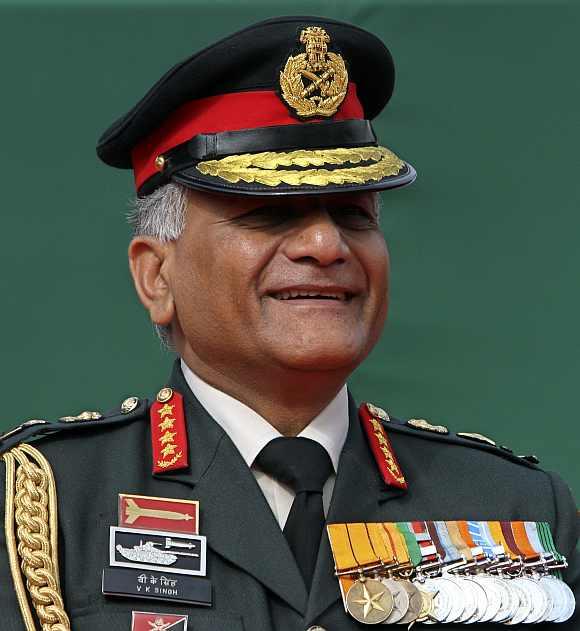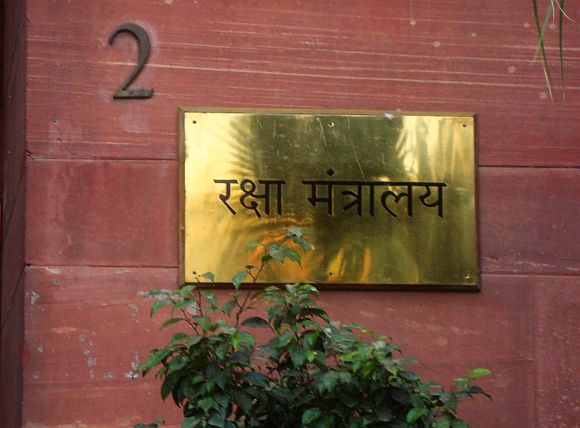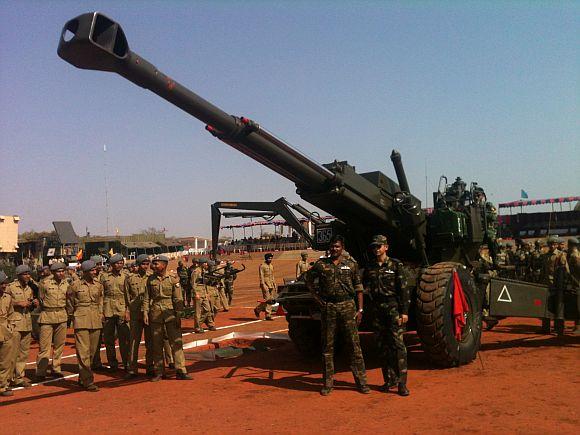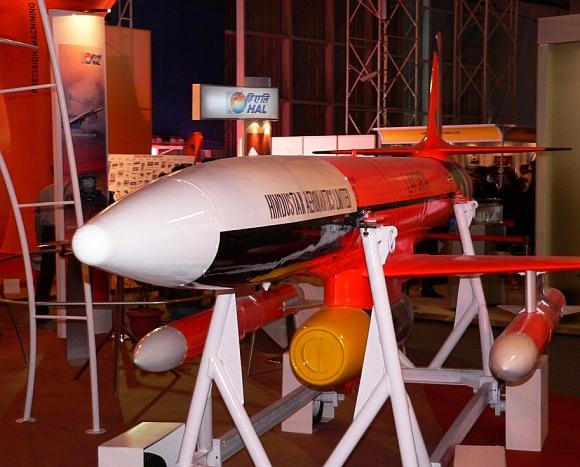 | « Back to article | Print this article |
Is India's defence establishment ROTTING?
The civil-military confrontation shows that integrating the defence ministry and reforming procurement are overdue, says senior journalist B G Verghese
The disgraceful civil-military crisis India has witnessed denotes complete failure of leadership on the part of the army chief and the defence minister. Rather than try and paper over the cracks, both should go.
The honour and security of the nation are far more important than small egos, "goodness", petty party and civil-military infighting, and a frightening public tendency to suspect conspiracy and corruption at anybody's prompting.
The larger and far more important issue that must be addressed is the dismaying exhibition of deep systemic and structural rot for which successive governments, across parties, must take responsibility. Indecision, drift and factionalism, not just on defence issues, have become the hallmarks of governance and politics.
The role of sections of the media in all of this has been less than glorious.
After a wholly unnecessary and unseemly age row, the army chief casually informs the country through the media that a year or more ago he was offered a Rs 14-crore bribe by a just-retired lieutenant-general to facilitate purchase of what he considered substandard and overly priced trucks.
This was an extraordinary and irresponsible stance. Why make that disclosure now? The chief, however, properly reported the matter immediately to the defence minister, who asked him to reduce the matter to writing and initiate action.
The chief did not wish to pursue the matter, while the minister demurred, since there was nothing in writing.
Here was a duet of folly and farce when the house was on fire. The defence minister does not appear to have kept the prime minister in the loop. Indeed, the entire national security apparatus was seemingly bypassed.
Click NEXT to read further...
The current tamasha has the world laughing at India
National secrecy trumped national security for a whole year until the bubble was burst by the general for collateral reasons -- suggestively to stymie a civil-military arms dealer cabal conspiring to defame him and subvert honest and effective army procurement.
A very recent letter from the chief to the PM was leaked next, with the not-so-secret revelation that the army is ill-equipped, even unprepared to fight a war today.
Instead of addressing the fundamental rot, the debate has revolved around the second order of irrelevance.
The current tamasha has the whole world laughing at India -- and has done the armed forces' image and morale great harm. Two issues that emerge cry for immediate attention: one, civil-military mistrust within the ministry of defence; and two, defence production and procurement policy.
The armed forces are not integrated with the defence ministry but constitute a parallel, though subordinate, echelon. The three services, too, are not integrated but are under separate commands and lack increasingly required co-ordination despite a weakly structured Chiefs of Staff Committee.
Both are hangovers from India's colonial inheritance. Jawaharlal Nehru, fed by Krishna Menon, was for civil, not just political, supremacy, fearing a military coup.
It was for this reason that the Kargil Review Committee and subsequent committee recommendations favouring a chief of defence staff and an integrated ministry failed to pass muster, with inter-service rivalries reinforcing the case for civilian control.
Click NEXT to read further...
Few realise that non-decisions constitute decisions
This obsolete structure has exacerbated civil-military mistrust, caused endless delays in processing matters and allowed many emerging matters to fall between the cracks.
The age controversy also points to the need for urgent reform. The highest military commands must be based on merit and efficiency, not gerontocracy.
Some civilians rise to the highest ranks not on the basis of competence but because they are survivors, having done no "wrong" in hindsight only because they did nothing and merely marked time.
Achievers take risks and most likely make mistakes. So to equate a bona fide error or less-than-optimal outcomes or additional costs with malfeasance -- a disease of epidemic proportions in India -- is to invite paralysis.
Few realise that non-decisions constitute decisions and can be extravagantly costly.
And so to the gaping gaps in military procurement. No artillery acquisitions have been made since Bofors. Vendors who lose out turn "whistleblower", allege faulty or unfair trials, and hint at corrupt practice.
Disgruntled officials indulge in selective, motivated leaks and find media partners looking for "breaking news", however uncorroborated; shallow politicians anxious to score a point, any po#8747 and nervous officials and ministers afraid to decide.
The result is: put procurement on hold, order re-tendering, and blacklist (all) vendors. Middlemen are seen as dangerous characters seeking a cut whereas many play a useful role and need merely be licensed under rigorous rules. Not just vendors but even governments woo India, the world's largest arms importer.
Big money goes with large defence contracts. But not to procure entails multiple jeopardy -- shrinking or ageing inventories, unpreparedness, lack of training and, ultimately, higher costs, sometimes on account of emergency purchases, as during the Kargil war.
Click NEXT to read further...
Lessons to be learnt from the current crisis
India is import-dependent because indigenous defence production and research have been scorned. It is more exciting to visit France or the US and demand fancy qualitative requirements based on annual brochure upgrades than to invest time and money in our own ordnance factories and PSUs.
The Indian private sector was ridiculously shut out for years on the grounds of secrecy, competence and inexperience, even as foreign vendors were patronised to learn at India's expense! The military is as much at fault here as the ministry. The navy has done better than the other services in indigenisation.
This is because the warship is a complete platform in itself, and the navy started building warships early on and had its own officers and specialists, commanding and manning dockyards.
There are clear lessons to be learnt from the current crisis. Defence communication and information systems remain hopelessly inadequate. The Defence Research and Development Organisation, ordnance factories and PSUs as domestic vendors must have a close interface with those they are intended to serve.
They cannot function on a cost-plus basis without sound timelines and quality control. The private sector must not be kept at arm's length. Structural reorganisation at the top with a chief of defence staff, a truly integrated defence ministry, jointness and merit can no longer wait. Parliament must insist on quick discussion and implementation of the Naresh Chandra Committee's forthcoming report on preparedness and higher defence management -- the nth in the series.





